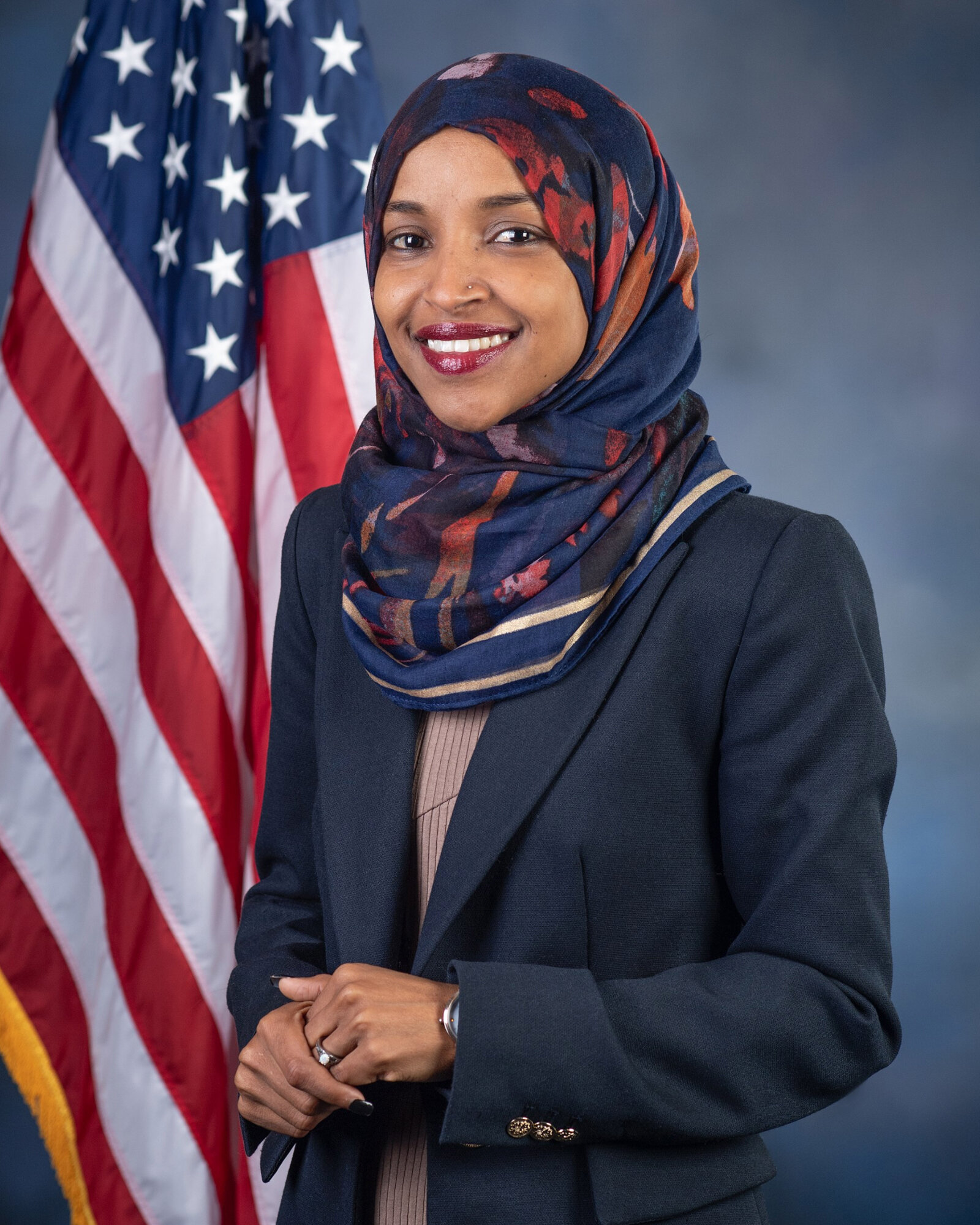Rep. Ilhan Omar (D-MN), Rep. Jim McGovern (D-MA) Rep. Jan Schakowsky (D-IL) led a letter today to the American Apparel & Footwear Association (AAFA) to support fairer wages and to protect labor rights for Bangladeshi workers. The letter is co-signed by Reps. Raúl Grijalva, Barbara Lee, Alexandria Ocasio-Cortez, David Trone, and Susan Wild.
“We are writing to urge the American Apparel & Footwear Association (AAFA) to strongly support the demands of Bangladesh’s garment workers for fairer wages,” the lawmakers wrote.
“As you know, the recent wage increases announced by Bangladesh’s wage board, which would not even meet the rising cost of living, have led to extended mass protests. Police have responded with violence against protesters and trade union leaders, resulting in at least four deaths, numerous injuries, and a wave of unjust arrests, detentions, and indefinite factory shutdowns. We agree with the Biden administration’s call for the government of Bangladesh to respect and protect workers’ rights to organize, protest peacefully, and collectively bargain without fear of retaliation, violence, or intimidation.”
Recent negotiations over a new minimum wage for garment workers have led to mass demonstrations, ever since the wage board announced an increase far below living wage levels. Factory owners and police have responded to the protests with intimidation and violence. U.S. brands must use their influence and stand together with workers by immediately demanding better wages and rights for Bangladeshi working families.
This letter echoes the sentiments of local worker organizations, international trade unions, and the U.S. government to revisit the minimum wage decision and respect worker rights, including the freedom of association.
The letter is endorsed by Academics Stand Against Poverty, Asian Pacific American Labor Alliance (AFL-CIO Affiliate), IndustriALL Global Union, Institute for Policy Studies – Global Economy Project, Labour Behind the Label, Oxfam America, and Workers United (SEIU Affiliate).
You can read the full letter here and below.
Stephen Lamar
President and CEO
American Apparel & Footwear Association
740 6th Street N.W.
Washington, D.C. 20001
Dear Mr. Lamar,
We are writing to urge the American Apparel & Footwear Association (AAFA) to strongly support the demands of Bangladesh’s garment workers for fairer wages. Due to their significant presence and operational leverage in Bangladesh, we believe that AAFA member companies are strongly positioned to support workers’ petitions for livable wages and to vocally champion their labor rights in a key country for the global apparel industry. The escalating repression that Bangladeshi workers are enduring underscores the urgent need for transformative, systemic reform—a call to action that U.S. corporations must heed.
As you know, the recent wage increases announced by Bangladesh’s wage board, which would not even meet the rising cost of living, have led to extended mass protests. Police have responded with violence against protesters and trade union leaders, resulting in at least four deaths, numerous injuries, and a wave of unjust arrests, detentions, and indefinite factory shutdowns. We echo the Biden administration’s call for the government of Bangladesh to respect and protect workers’ rights to organize, protest peacefully, and collectively bargain without fear of retaliation, violence, or intimidation.
While we were encouraged to see several U.S. brands express support for a wage increase and a fair, transparent wage setting process, words are not enough. The reluctance to support a living wage of 23,000 BDT, or around $208 per month, is not only disheartening but shameful. We implore the American Apparel & Footwear Association to:
· Call for an immediate end to the violence perpetrated by police and other security forces against workers;
· Pressure the government and garment manufacturers of Bangladesh to improve the wage setting process and accept workers’ minimum demand of $208 per month to align with the real cost of living;
· Commit to maintaining a long-term sourcing relationship with your suppliers and to increasing your purchasing prices to fully absorb the additional labor costs;
· Foster transparency and accountability in the business operations and supply chains of member companies to safeguard labor and human rights, including the right to freedom of association;
· Instruct your suppliers to promptly withdraw or to dismiss any false criminal cases filed against workers and union leaders;
· Warn your suppliers to stop filing criminal cases against workers, and make clear that the dismissal, blacklisting, or other harassment of workers and union leaders is unacceptable and will influence your sourcing decisions;
· Call on Bangladeshi authorities to stop arresting workers and union leaders in response to wage protests and to immediately release innocent detained individuals; and,
· Use your considerable leverage with individual factory owners and industry associations to ensure that workers are paid in spite of recent factory closures.
Brands with factories in the Export Processing Zones (EPZ) sector should note that EPZs have their own Minimum Wage Board, which has just recently been constituted. Brand engagement can play a critical role in ensuring that the EPZ wage setting process does not follow the same disastrous and unfair path as in the garment sector outside the zones. There is still a chance for a better outcome that will not trap EPZ workers in poverty for another 5 years.
We believe that our actions abroad should always reflect our values at home. The historic challenges faced by garment workers in Bangladesh are part of a shared global struggle for good-paying jobs, safe working conditions, and the right to organize. When we support workers’ rights in one part of the world, we bolster the fight for those rights everywhere. We hope the American Apparel & Footwear Association will take this important opportunity to lead by example and demonstrate that U.S. companies will prioritize supporting and promoting workers’ rights both domestically and globally. We urge you to help stop the exploitation against the Bangladeshi workers who have fueled the growth and profit of your businesses, and in support of the democratic, inclusive values that we cherish as a nation.










